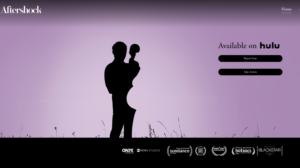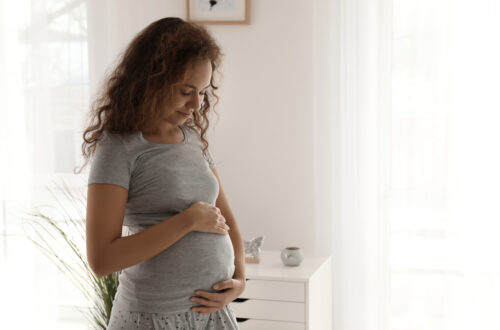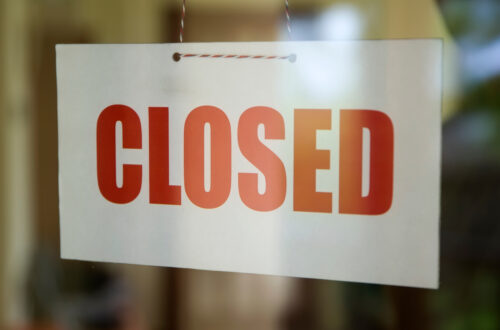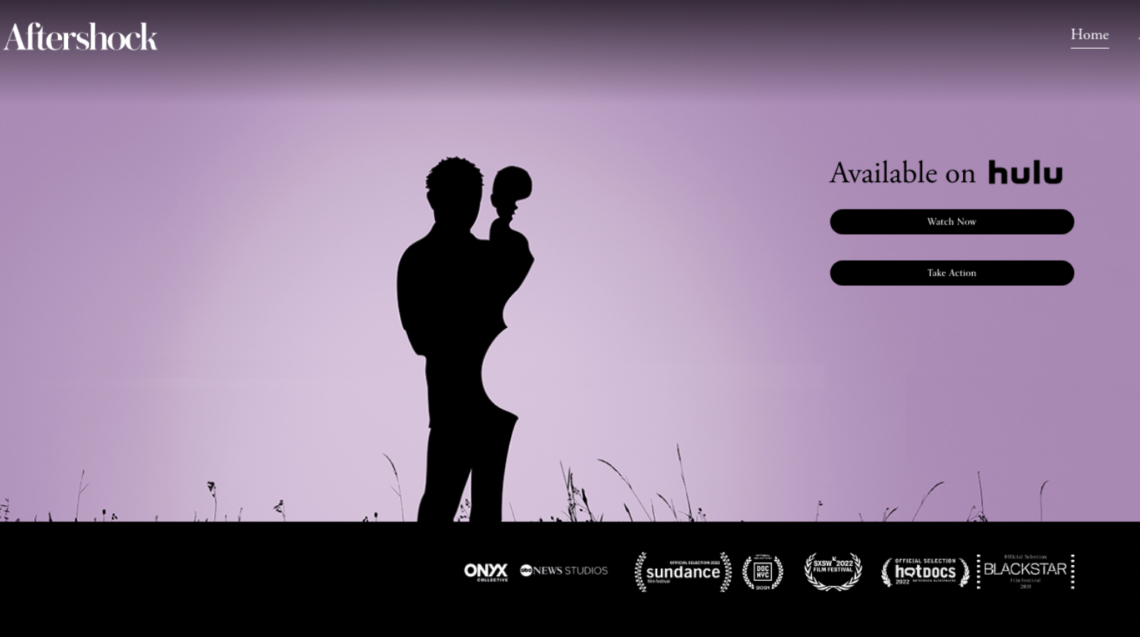
Black Maternal Health Week and The Jamaa Birth Village
Pregnancy for most is a time of incredible joy and amazement. However, for some it is a terrifying time as they anxiously await the birth of their child — worried that they or their child may become a death statistic. For years World Health Organization (WHO) statistics have shown that depending upon where you live and your background, you may face a 3x to 10x greater risk of death during this period. Although worldwide rates of maternal mortality have decreased markedly in the past two decades due to improvements in prenatal and postnatal care in Asia and Africa, in the United States, maternal mortality has been INCREASING — almost DOUBLING for Black women in the past 4 years.
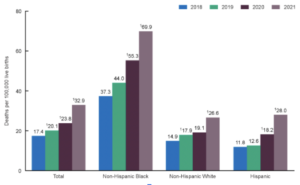
Figure 1. Maternal mortality rates, by race and Hispanic origin: United States, 2018–2021
1Statistically significant increase from previous year (p < 0.05).
NOTE: Race groups are single race.
SOURCE: National Center for Health Statistics, National Vital Statistics System, Mortality.
The Centers for Disease Control and Prevention (CDC) says that “about one in three pregnancy-related deaths occur one week to one year after delivery.” Up to 60% of these deaths were preventable. What’s worse is that the risk was higher for women of color. Overall, Black women and American Indian/Alaska Native (AIAN) women are at least three times more likely to die during or after pregnancy than white women to die due to pregnancy.
And the statistics are worse in some states over others. For example, in Illinois, their risk is six times greater.
The top 5 risks to maternal health are:
- Heart disease, high blood pressure
- Diabetes
- Infections, which can lead to sepsis
- Blood clots
- Bleeding (hemorrhage)
This MUST change.
April brings us Black Maternal Health Week
April 11 to April 17th is Black Maternal Health Week. At Decipher Your Health, we would like to honor the many people working to reverse this terrifying decline and optimize maternal health in the Black community — and EVERY community. This year’s official theme for Black Maternal Health Week 2023 (#BMHW23) is “Our Bodies Belong to Us: Restoring Black Autonomy and Joy!”
Let’s introduce you to someone who is reversing this tide:
Taking matters into her own hands
Okunsola M. Amadou, the first Black Certified Professional Midwife in Missouri, is combating the challenges that Black mothers face.
According to an article published by PBS last year, Black women in Missouri are “four times more likely to die in childbirth than others in the state.” The article also stated: “Black women living in Missouri are also more likely to experience severe maternal morbidity, a term used to describe acute conditions that either cause death or create short or long-term health complications, the report found (a rate of 220 per 10,000 live births compared to 89 per 10,000 live births among white women).”
As a teen living in St. Louis, Amadou underwent two traumatic c-sections. Following this she vowed to help other women in her community avoid experiencing the same horrible circumstances. In 2012, she safely and successfully gave birth to her third child, at home. She was surrounded by a midwife, her family, and a doula, a trained professional who supports a person during pregnancy and afterward.
Amadou’s path to a successful home birth, becoming a breastfeeding counselor (also called a lactation consultant), a doula, and then a midwife was a long and arduous one, taking her from Missouri to Africa to Utah and home again. In 2013, so inspired by her successful home birth and facing multiple barriers at home, she traveled to Elmina, Ghana to train to become a midwife. There, she learned that the Swahili word for family was “Jamaa” and her idea was born. Finally in 2015, she founded Missouri’s first Black Midwifery clinic, Jamaa Birth Village. Work began in her living room with the development of an 8-day doula program and since then has expanded to a stand-alone clinic building within a community of resources. She has leveraged her community to help young families on all fronts- sharing space with a local grocery, community garden, and conveniently located near the public library, a pharmacy, and local schools and churches.

Since its inception, Jamaa Birth Village has had the successful birth of many children with no deaths and minimal morbidity, and has provided education and support for breastfeeding for many.
Amadou wishes to build on that success and the Jamaa Birth Village has a capital campaign to build a larger, more encompassing facility to support the community. You can learn more about this amazing project’s timeline here: Jamaa Birth Village.
Decipher Your Health is a project to help people become more knowledgeable about their healthcare and their role as the central part of the healthcare team. While not all of us may be able to do what Amadou has done — and continues to do — we can help ourselves and our loved ones by being strong patient advocates. Please join us at DecipherYourHealth.com to help make a difference.
To learn more about maternal mortality among Black women, consider watching this documentary: Aftershock.
Disclaimer
The information in this blog is provided as an information and educational resource only. It is not to be used or relied upon for diagnostic or treatment purposes.
The blog does not represent or guarantee that its information is applicable to a specific patient’s care or treatment. The educational content in this blog is not to be interpreted as medical advice from any of the authors or contributors. It is not to be used as a substitute for treatment or advice from a practicing physician or other healthcare professional.


